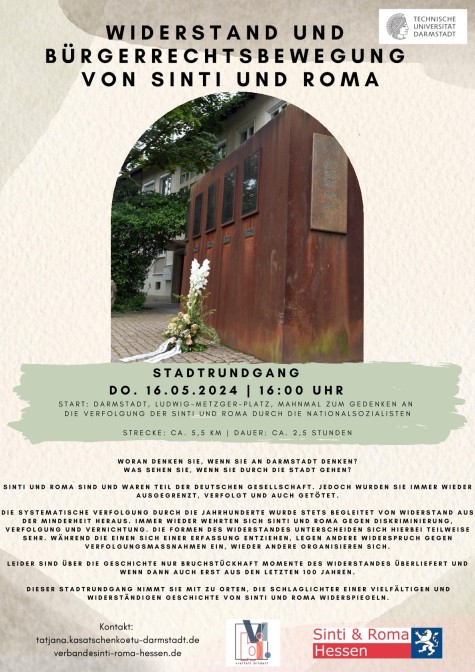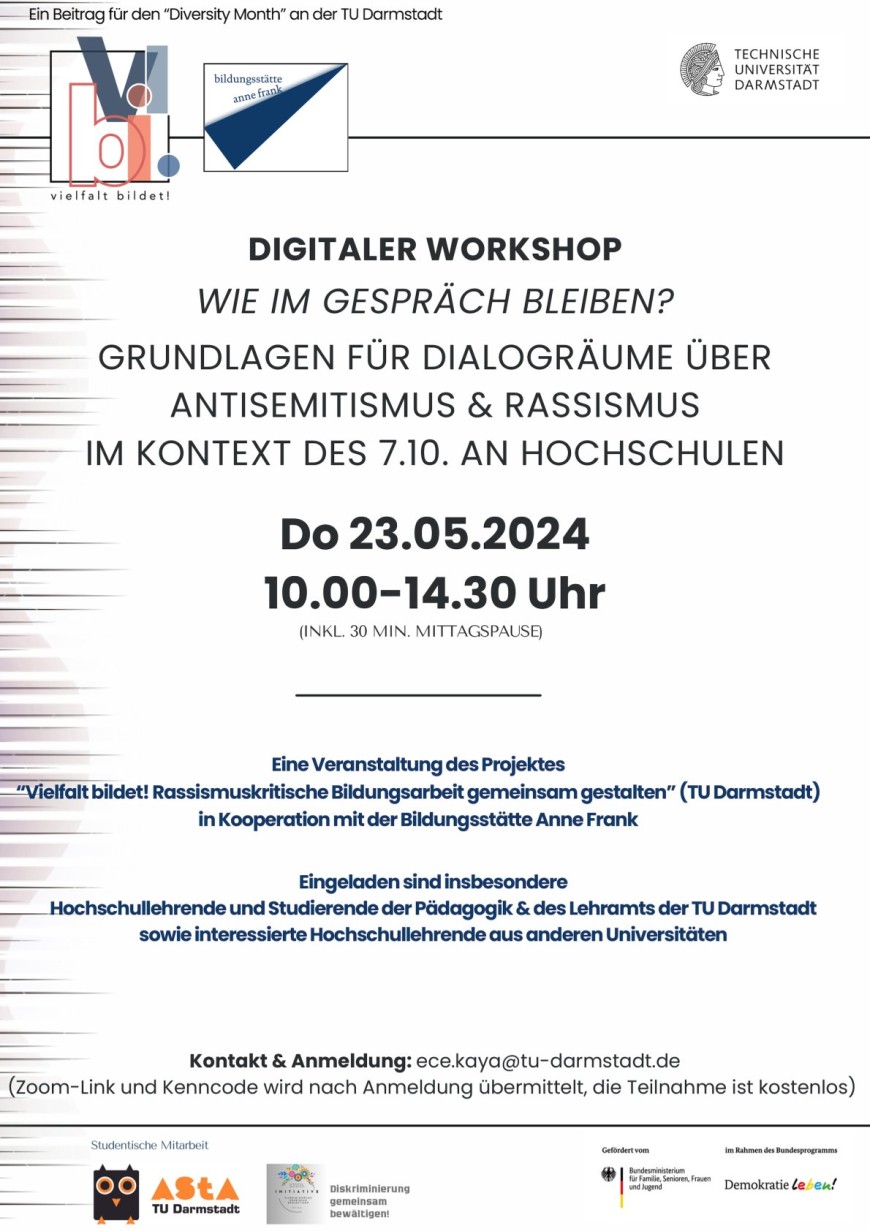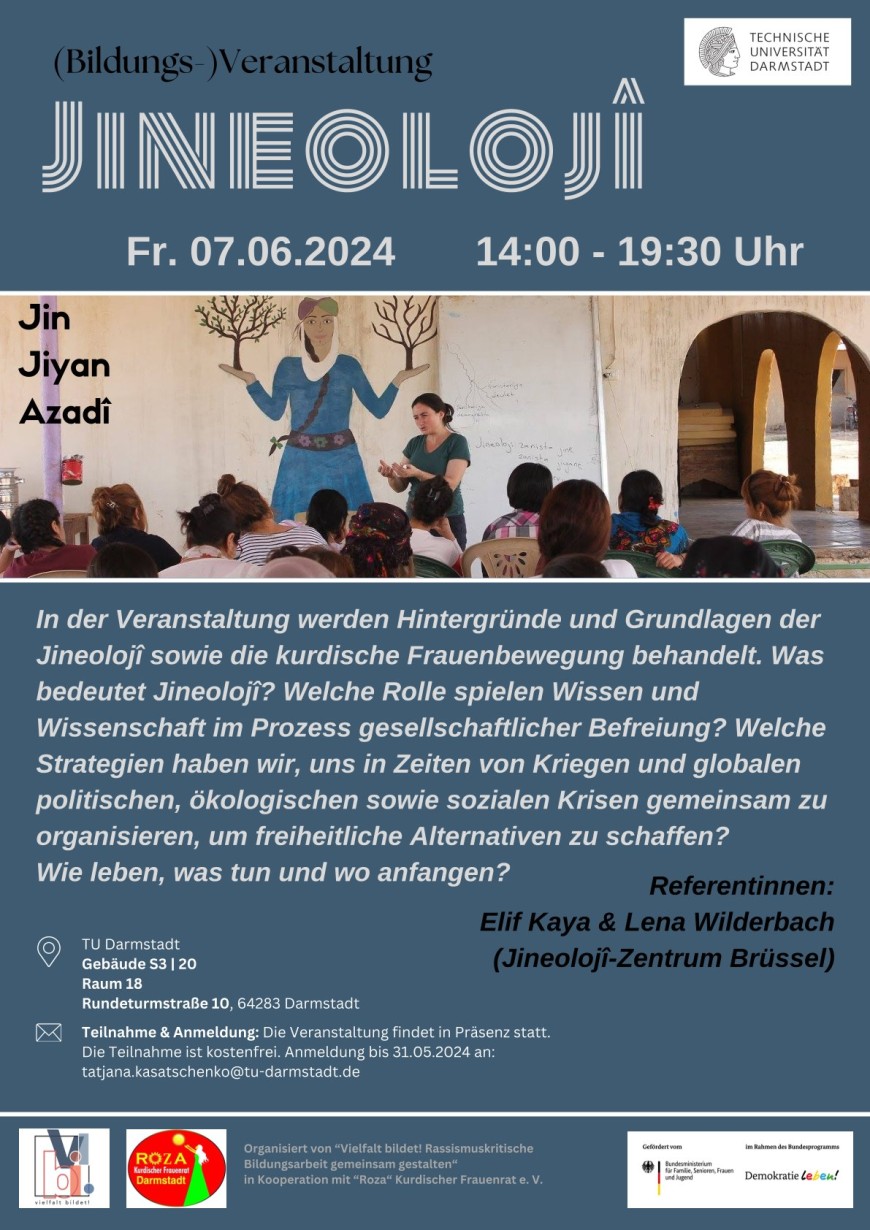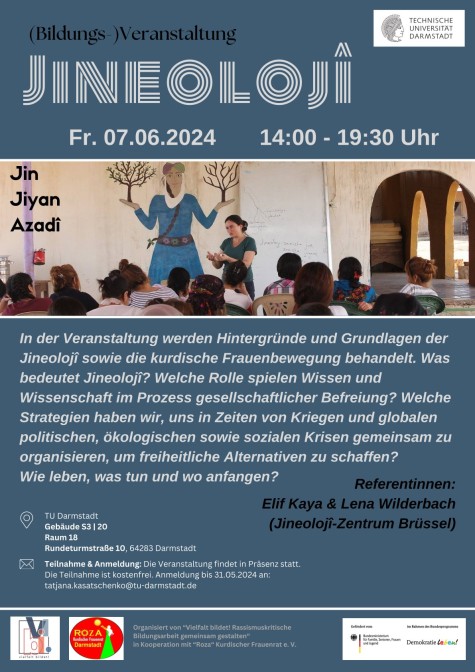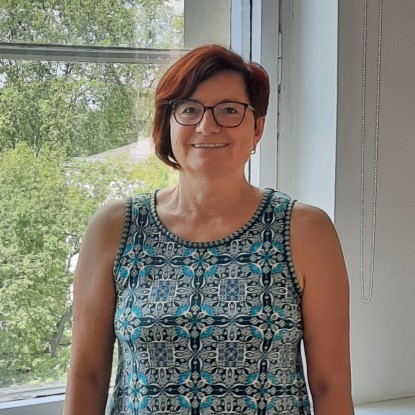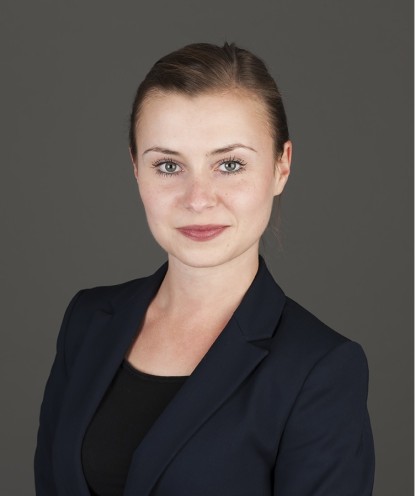The “Vielfalt bildet!” (“Diversity educates!”) project that started in 2020 aims to sensitise future multipliers in education, teachers and pedagogues for racism. People of colour and people with a migrant background are typically underrepresented at educational institutions such as universities. As institutions representing society, they are, therefore, part of the systemic reproduction of racism and social inequality. However, they also have the potential to provide avenues of discourse to question existing socio-economic conditions, narratives and structures of bias and prejudice.
Praxislabor
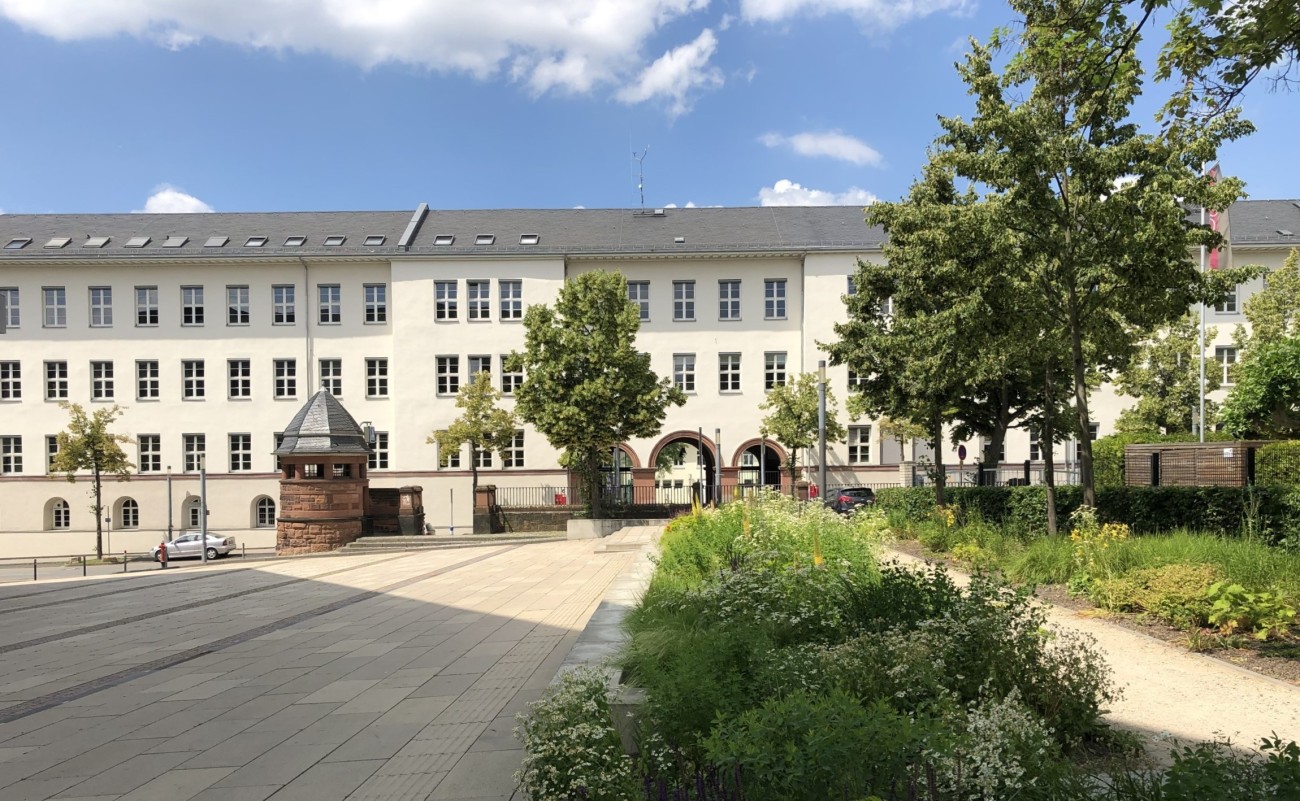
Vielfalt_Bildet
Recommended external content
We have selected external content from Instagram for you and would like to show it to you right here. To do this, you must reveal it with one click. You can hide the external content at any time with another click.
I agree to external content from X being shown to me. This may result in personal data being transmitted to third-party platforms. You can find more information in our Privacy Policy.


